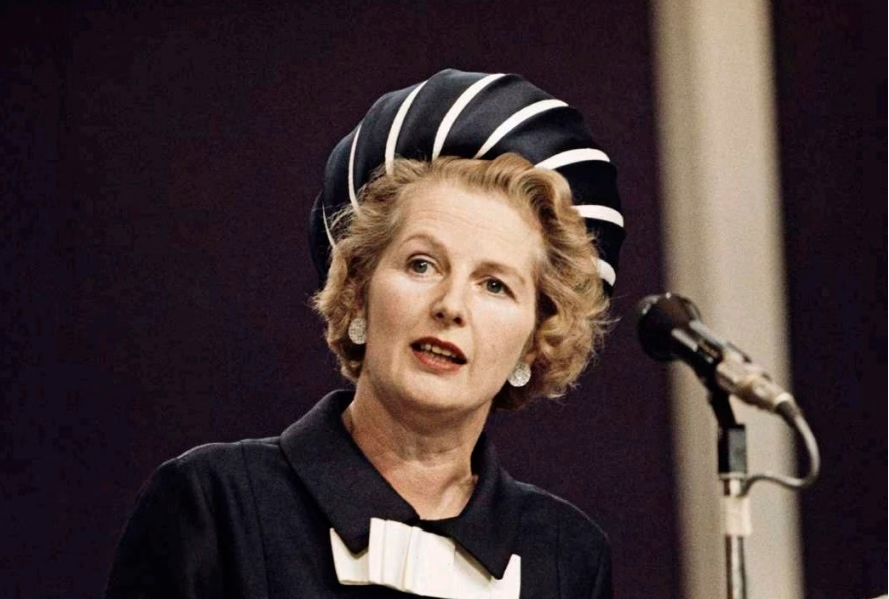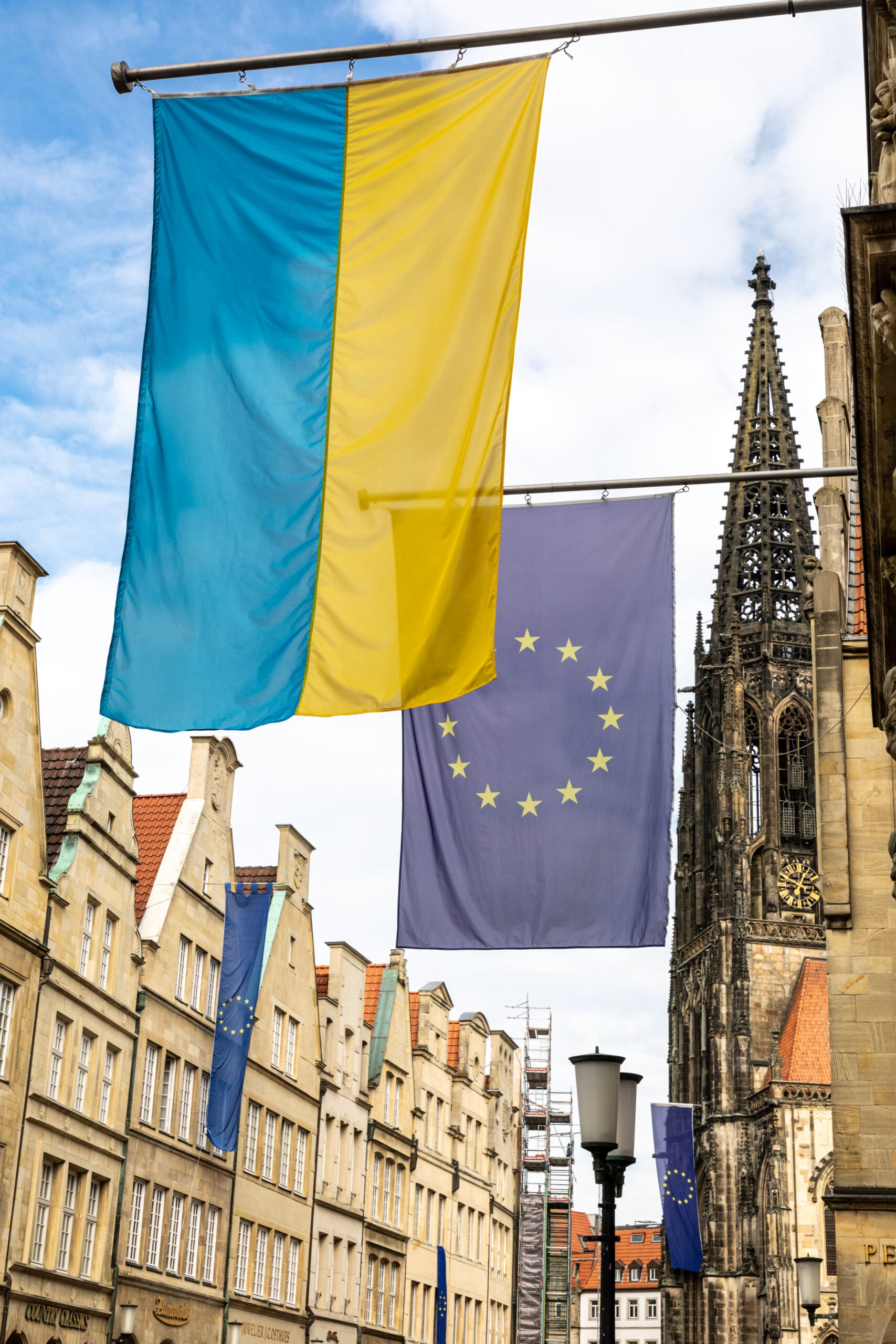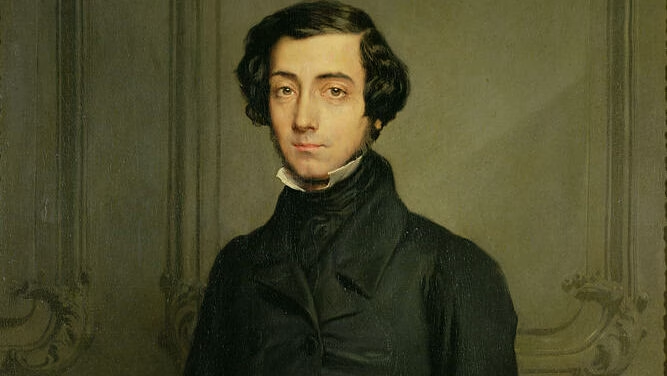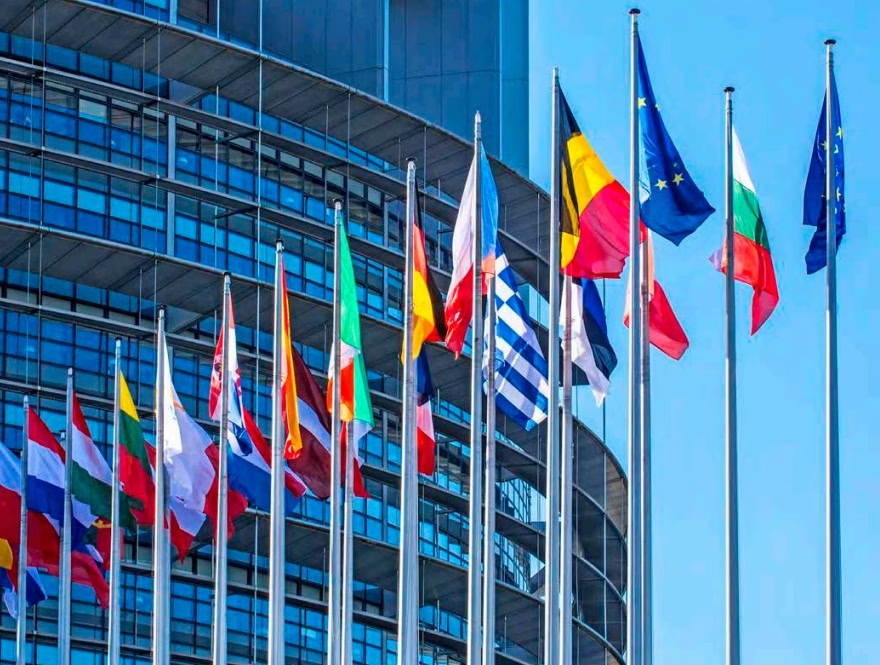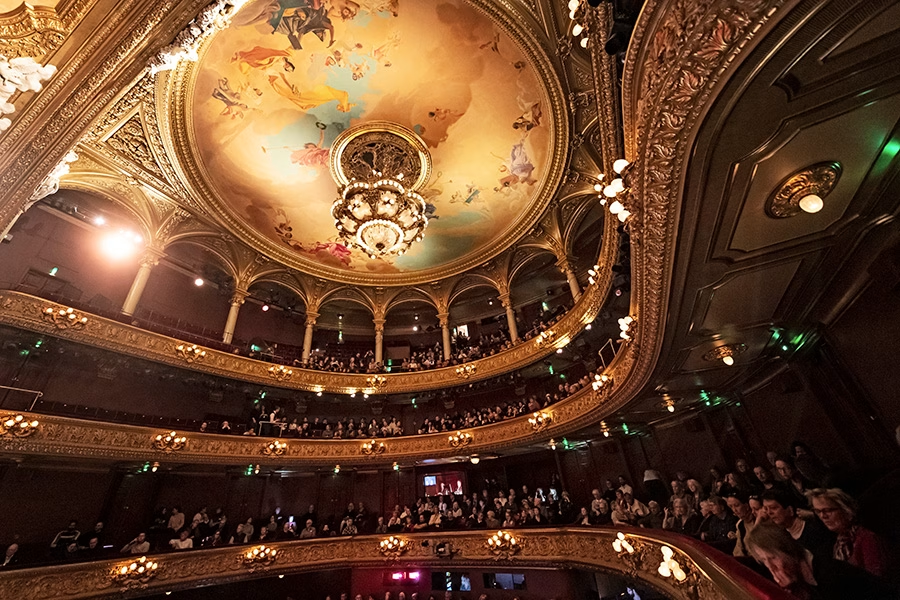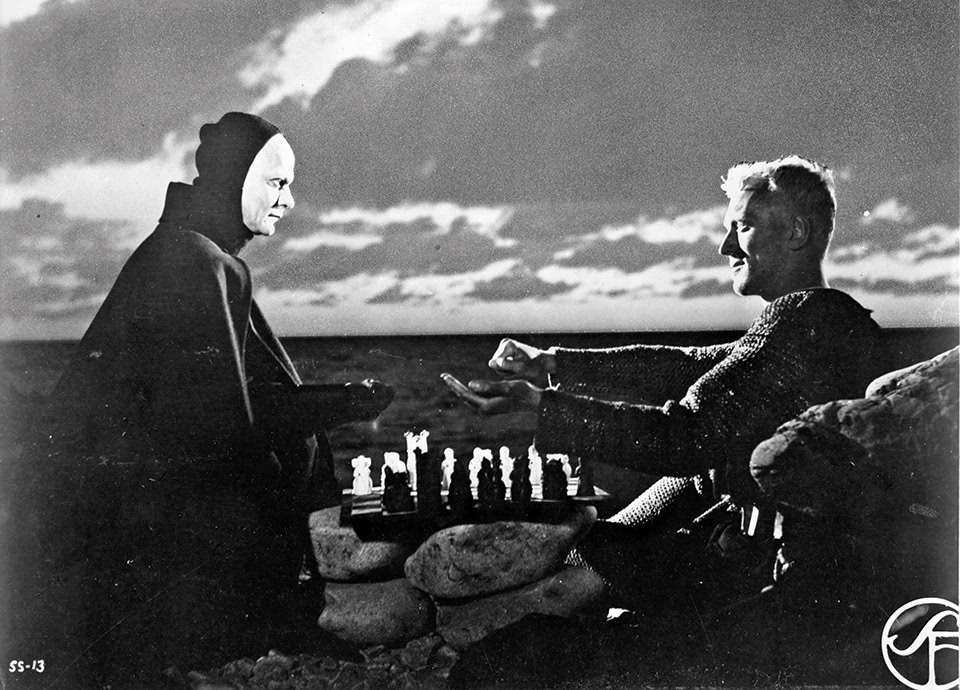For socialism’s enemies the answers were as plain as a bread queue but for socialists it had always been more complicated than that. Socialism represented a possibility, a better way, an ideal that was necessarily compromised by the prevalence, in fact the very existence, of capitalism.
What socialism amounted to at the beginning of the Eighties in Europe, and particularly in Britain, was a tangled knot of disparate ideas. There was traditional labourism, with its male-dominated unions and paternalist outlook. There were the hard-core revolutionaries and the Soviet sympathisers, the Trotskyists and the Stalinists. There was also the post-1968 New Left, which was more socially permissive, emphasising individual liberty in matters like sex and sexuality, and the well-meaning social reformers, who took an almost Christian line on crime and social deprivation. There was the devolved, anti-statist position that saw civic institutions as inherently ominous and controlling and at the same time there was a widespread understanding that the state should continue to be interventionist, organising as much employment, housing and social welfare as possible. There was the new Town Hall left, which looked towards ethnic minorities and dispossessed groups as their constituency. And taking shape in the background was an academic, postmodern left, culturally and morally relativist, anti-western, and in thrall to the intellectual cult of deconstruction.
In the broad consensus of postwar Britain, socialism and liberalism and even ‘One Nation’ conservatism had become entwined together in political life. But when Margaret Thatcher removed conservatism from that menage and transformed it into a radical ideology, socialism and liberalism found themselves locked in a survival embrace. To be a liberal in the Thatcher years was almost by definition to be a socialist. Not in party political terms – after all, the Social Democrat Party was formed in reaction to socialism – but in the anti-Thatcherite public discourse. Naturally any self-respecting socialist would have claimed that they hated wishy-washy backsliding liberals. But such pronouncements were often more to do with Britain’s incurable addiction to class posturing. Liberal was virtually a synonym for ‘middle-class’, whereas socialist had earthier connotations. Another distinction was that liberal was often used in the passive sense, referring to a sensibility, whereas socialist implied something more active, grittier, more resistant, a commitment, an ideal. In practice the line between the two was not always obvious.
For example, it was quite possible to come across, as I once did, a dope-smoking gay squatter who extolled the benefits of East Germany, a nation that was hardly renowned for its tolerance towards dope-smoking, gayness or squatting. The implicit understanding was that ‘socialist’ countries should be judged by less exacting standards. That’s exactly what I did. During the militant years of the early Eighties I had a girlfriend whose mother was an ardent Tory from a landed, faintly aristocratic background. An embittered and energetically unhappy woman, she loathed socialism and the working classes and, as she made abundantly clear, she loathed me. One day, without much warning, she decided to take my girlfriend and her sister on holiday to Albania to show them the horrors of communism. When they returned after a bizarre fortnight spent with a Stalinist tour group, they were full of appalled tales of the country’s backwardness and poverty. All I knew about Albania were its extreme ideological purity and isolation, that it had broken from Moscow because the Soviet Union was too liberal, and that it backed away from China, in protest at Mao’s meeting with Nixon. Yet so aggravated was I by my girlfriend’s mother’s right-wing attitudes that when the sisters described what they had witnessed, I found myself attempting to mount a defence of the cartoon dictator Enva Hoxha. ‘But you don’t understand,’ they told me, ‘the people live in terrible poverty, while the top party officials drive around in limousines. How can that be about equality?’ It’s a process, I sagely explained, you can’t change a traditional society overnight. A few weeks after my girlfriend’s return, Hoxha continued the process by killing half the leadership, including his deputy.
Around this time, I was fascinated by the revolutionary left. I used to spend hours in Collets bookshop in central London reading the stacks of newsletters and publications that these grouplets (SWP, RCP, WRP, CPGB) somehow managed to produce. It was a secret world of schisms and vendettas, with each microparty competing, in the communist historian’s Raphael Samuel’s phrase, ‘for the honour of leading a non-existent revolutionary working-class’. Each maintained that it and it alone understood the correct line, and all refashioned recent events to conceal the misguided direction of the previous correct line. Every word was written in high declarative style, as if the authors had imagined Lenin reading their words at the Finland Station. As with all zealots, they believed the day of reckoning was nigh. Instead of the apocalypse, revolution was on its way in, hastened by the unstinting demand for a general strike. Every week that it didn’t take place meant only that it was one week nearer. And all the time, the hysterically impatient calls to action – Fight Now! March Now! Ban Now! – that exhausted parody. These rallying cries worked on me in the same way, I suspect, that they worked on many other people who did not take them seriously. That is, in some incomprehensible fashion, they still worked. Or at least had a psychological effect.
For though it never accounted for more than a tiny fraction of voters, the far left managed to exercise a disproportionate influence on the British and European political scene. Not so much through the traditional means of marches, meetings, industrial organisation and the like, which had limited impact on political life at large. Rather, where it made a mark was with the existential challenge it proposed: what do you intend to do. In other words, it was easy, indeed sensible, to dismiss the far left as fantasists and sinister cranks, but it was much harder, in all conscience, to ignore the idea of dramatic social change that these small parties represented. For if you thought society was unfair, what were you prepared to do to change it? It’s a question that has struck at the heart of liberal guilt.
In one way or another I spent much of the 1980s asking myself what I was prepared to do. Mostly the question was couched in philosophical terms, the better no doubt to postpone actually doing anything. I was hardly the radical son. There were some scattershot juvenilia: I graffitied a few Shell garages as an anti-apartheid protest. I was carted off by a police van at a Stop the City march. I canvassed for John McDonnell, a left-wing Labour candidate in the calamitous 1983 election. I also did voluntary work for a Third World charity, took part in vigils at South Africa house, CND marches, fund-raising for miners during the strike and various other activities that could be loosely defined as ‘doing something’. And later I would go to Nicaragua to support the Sadinistas. In addition there were a few dispiriting forays into trade union work. It was here that I first came across the boilerplate script used in most political meetings. The shopworkers and delivery workers union at Harrods was what used to be called a ‘moderate’ union. It had few hard-left members and none among its leadership and yet the spirit of the hard-left hung over proceedings like an invisible commissar. Very soon I realised that the object of the meeting, and the object of many to come, was for each participant to appear more radical than whoever had spoken last. A kind of moral exhibitionism and inflationary zeal informed almost every utterance, as if the aim was to get to a declaration of a general strike in as few contributions as possible: ‘You think we should have a 10 per cent pay rise? Well I think it should be 15 per cent. I win.’ Just how entrenched this syndrome was I realised many years later when I found exactly the same principle in operation at newspaper union meetings. On one occasion I sat at a table with a group of highly paid and not especially productive journalists as each one took it in turns to up the demand of his neighbour. The newspaper, which was losing millions, had offered a pay rise in keeping with inflation but the journalists wanted more, much more. Up and up went the bid – 5 per cent, 7.5 per cent, 10 per cent, work-to-rule, until finally one man called for an all-out strike. For this speaker the withdrawal of labour was in a sense an academic threat as he had barely written a word in months. He was one of the highest paid in the room, with many years of service (or at least employment) and a large pension awaiting him. And at the time, he was going through an internal disciplinary procedure for repeatedly downloading child pornography. Not one person present at the meeting, myself included, said a word in opposition to his demand. Instead some openly agreed, others nodded their heads and the rest of us remained silent. Outside the meeting, such a scene would have been recognised as ridiculous, but within this looking glass world it was completely normal.
None of my dilettante activities in the 1980s began to address the challenge set by the hard left. They were a noncommittal kind of commitment, a form of badge-wearing, like the ‘Coal not Dole’ sticker I wore throughout the miners strike of 1984. They were lame efforts, to be sure, but that wasn’t the principle reason they failed the test. For there was no action, no matter how committed or extreme, that could meet the challenge. This was point of the far left, this was its psychological role, to foster a sense of an individual’s impotence. The whole project was dedicated to exposing the ‘sell-out’, the ‘bourgeois lackey’, the ‘Menshevik mentality’. How could it do anything else? Every communist or ‘workers’’ state in history had been a disaster, combining inefficiency, corruption and repression to universally miserable effect. There was nothing tangible to aim for, no proletarian paradise on Earth. To be sure, those far-left parties, invariably Trotskyist, that were critical of the Soviet bloc could still maintain that, if things were done their way, then heaven was just a revolution away. But no one aside from a few crazed ideologues and the cravenly naive believed that. And yet these groups continued to exert a moral pull on the liberal heartland of the left. Labour-controlled local authorities succumbed to revolutionary fervour during the Thatcher era, with groups like the Militant Tendency, a clandestine Trotskyist sect, effectively hijacking the city of Liverpool. As this process was repeated in town halls throughout the country, leading to pantomime mismanagement and in many cases bankruptcy, it was striking how few in Labour party dared to speak out. It would have required an engagement with reality. And it was the hard left’s triumph that they succeeded in blocking that process among progressive people. They had made reality a no-go area.
Socialism, in many left-wing local authorities, had become concerned with promoting policies that were selected for their ‘resistance’ value, how much they would thwart the government and irritate the conservative media. In this barricaded atmosphere, the worst crime was siding with the opposition. Thus when a right-wing newspaper, the London Evening Standard, exposed the paedophiliac abuse that was widespread in Islington’s children’s care during the Eighties, it was dismissed by Margaret Hodge, the council’s leader and later the Labour Minister for Children, as ‘gutter journalism’. She remembered which side she was on. If the right-wing press said it was taking place, by definition it was not taking place.
The censorial spectre of the hard-left also haunted the 1984-85 national miner’s strike. However, in that case the fear of being labelled a capitalist running dog was far outweighed by heartfelt sympathy for the miner’s cause. The strike was the last great hurrah of industrial protest in 20th century Britain, and the final roll of the dice for traditional class politics. The almost atavistic tribalism surrounding the dispute transcended all my own personal reservations about membership of the working class. It was the defining ‘whose side are you on’ moment of the decade. On the left was Arthur Scargill, the National Union of Minerworkers fuzzy-haired president, a die-hard socialist and Soviet sympathiser. On the right, Margaret Thatcher, the Cold Warrior Conservative Prime Minister with the armoured blonde bouffant. Each had their own troops, the flying pickets against the combined forces of the British police. The past in hand-to-hand combat with the future. It was real conflict, with real consequences, not simply a symbolic action, though it was also a battle of symbols. The miners represented a sort of proletarian ideal. They suffered so that society might benefit. There was something noble and inspiring about the miners as a collective workforce, their ‘tight-knit’ communities, their traditions, their bravery, their solidarity. They chivvied away in the bowels of the earth to extract the dark material that brought us heat and light. ‘Coal not Dole’ said the sticker on my jacket and its truth was simple: coal good, unemployment bad. But was coalmining good? Given the choice, who really wanted to dig up lung-damaging lumps of black rock in back-breaking conditions far beneath ground? Obviously Margaret Thatcher did not take on the miners because she was concerned about their health. But then neither was it uppermost in the minds of those, like myself, who professed solidarity with the miners. Occasionally the thought did occur, while I was raising or donating money, that I was supporting a struggle to ensure future generations of young men could work in a suffocating, claustrophobic, emphysemic hell. The kind of hell, what’s more, that I was in no danger of having to endure.
Various ‘minority’ groups played a part in supporting the miners, which resulted in such delightful incongruities as cross-dressing gay benefits for the strike. The awkward fact remained, however, that the miners were almost without exception white working class and that was a constituency that was fast going out of political fashion. In the capital, under the leadership of Livingstone, the Greater London Council had set about promoting a ‘rainbow alliance’ of minorities and the marginalised. These two strands of left-wing thought, the industrial and the multicultural, made gestures of unity, but they were distinct and often inimical political visions – one the voice of white, male heterosexuals, the other, avowedly not. It goes without saying that the collapse of the miners strike in 1985 had nothing to do with race or sexuality. It did not fail because of a lack of black, Asian, lesbian or disabled miners. Nonetheless it marked the demise of one idea of the left – class – and, in its place, the rise of another: identity.
The British and international left suffered a double loss in the Eighties, economic and ideological. The Thatcherite rejuvenation of the British economy coincided with the collapse of the Soviet bloc. The latter event should have been cause for celebration for all progressive-minded people but the truth is a kind of gulag-denial had long afflicted significant sections of the left, as it continues to do even today. It’s still not unusual to see prominent or influential members of the left come over misty-eyed with nostalgia for authoritarian dictatorships and even mass murder. George Galloway, the Respect MP and former Labour politician, called the end of the Soviet Union the ‘biggest catastrophe’ of his life. In 1996 Tony Benn, who occupies the position of a kind of saintly godfather among the British left, professed his admiration for Chairman Mao, whom he called ‘the greatest man of the twentieth century’. That the greatest mass murderer of the century could be called its greatest man demonstrated that the loss of morale on the left had not been accompanied by a gain in morality.
Having lost the economic battle in Britain and then the ideological the left shifted the theatre of operations to the cultural scene, where they enjoyed much greater success. Multiculturalism became an orthodoxy. And it was an orthodoxy that few dared to question. A sense of guilt, liberal guilt, prevented a proper critical analysis of identity politics, which in turn helped the left to foster grievance among various ethnic groups. The liberal-left got caught up in this escalating emotional spiral: the more guilt it expressed about colonial past, the more grievance could be generated. And further grievance led to only more guilt. It was not until the events of 11 September 2001 that this irrational spell was broken.
In the fallout, both geopolitical and cultural, that has followed the left has once again shown its sympathy with authoritarian voices by too often acting as apologists for the most reactionary and illiberal elements within ethnic communities. Self-styled community leaders have been aided by the left intelligentsia in their attempts to divide society into discrete ethnic groups. And even indiscriminate religious terrorism have been recast as a noble struggle for freedom. For example, John Pilger, a widely respected leftwing journalist, hailed the Madrid bombing as ‘the latest stage in a long struggle against the empires of the west, their rapacious crusades and domination.’
Socialism is no longer a word that you often hear in Britain. The cause of universal equality has been supplanted by the struggle for group difference. What unites both is the cynical, and inevitably dangerous, attitude that reduces the complexity of humanity to solid political blocks. Culture may have replaced class but the fallacy remains the same.

Redan prenumerant?
Logga inJust nu! Axess Digital för 39 kr i 3 månader
Därefter 59 kr/månaden.
- Full tillgång till allt innehåll på axess.se.
- Här är en till fördel
- Här är en annan fördel med att bli prenumerant




